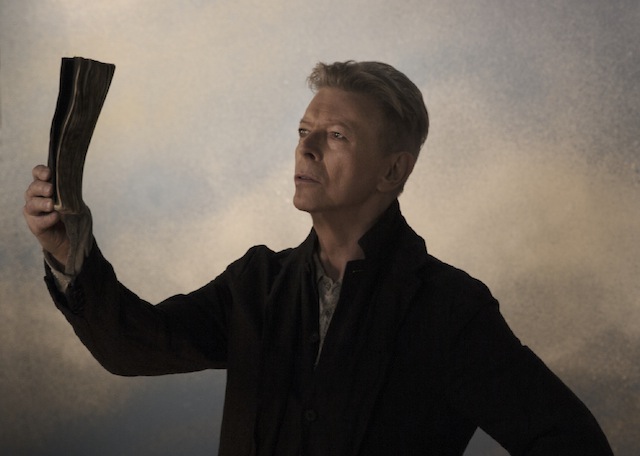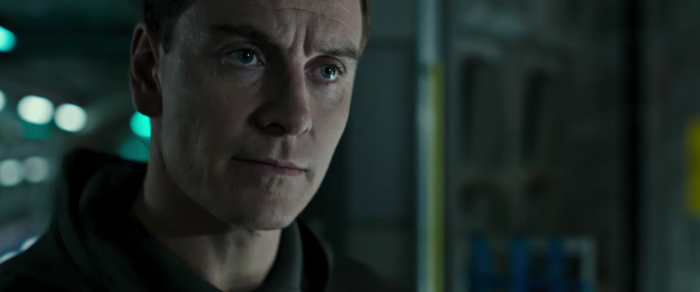Musicians, perhaps more than any other type of artist, lose it. Music is a visceral business, and there’s often (though far from always) that point when the spark goes out. For David Bowie it was right after 1983’s “Let’s Dance,” the brassy climax of a staggering run dating back to 1969’s “David Bowie” (later retitled “Space Oddity”). Not that he totally lost it; he just wasn’t as breathtakingly, consistently brilliant as he had been for a strong 14 year stretch. What followed was for the Bowie diehards, who bravely sifter through a spotty career, looking for diamonds in the rough. But there are diamonds. In fact, there’s lots of them. RELATED: PHOTOS: David Bowie style file
So what kind of animal is “Blackstar,” the legend’s 25th studio record? (Twenty-sixth if you count the never-released but bootlegged “Toy.” We’re nerds.) Bowie is releasing the new record on Jan. 8, his 69th birthday.Find out where it ranks as we break down the albums from the previous 23 years of the former Thin White Duke. (Spoiler: “Blackstar” is really good.) Near-peak
Nothing post-“Let’s Dance” can touch even his lesser best. But a few times he came close. “Outside,” from 1995, sounds nothing like Golden Age Bowie, but he was onto something genuinely new. Reuniting with old cohort Brian Eno, he crafted a madly ambitious semi-rock opera about a dystopia where art is banned. (Or something. Just roll with it.) He meant to crank out an installment every year till the new millennium. He lost interest quickly, but the one-off finds him revitalized and on. A song like “The Heart’s Filthy Lesson” is clearly inspired by Nine Inch Nails (with whom he would co-tour for the album), but he takes the gloomy-angry sound in his own odd direction. RELATED:Rachel Platten: “Everything I ever wanted came true. How crazy is that?” After 2003’s “Reality,” Bowie mostly laid low till the teens, partly due to health issues. But he stormed back with 2013’s galvanizing “The Next Day,” whose shorter song bursts (such as this one) that suggest an entire decade spent revving up for his comeback. The new “Blackstar” is nearly as good, and, apropos of Bowie, very, very different from what came before. It’s him in full-on weirdo art mode, offering up shape-shifting song cycles and sweary non-sequiturs over noodly instruments. “I can’t give everything away,” he sings at the end, which is either a lament over mortality or an admission that there’s plenty more to come. Interesting
The ’80s were financially peerless for Bowie but much less so creatively. It took him almost a decade to re-locate his groove, and you can hear his jets finally refueling not on an album but on the soundtrack, namely to the 1993 TV film “The Buddha of Suburbia.” Half-songs, half-instrumentals, it finds him back to experimenting with more stripped-down songs and soundscapes (like this one). The thought of Bowie doing Tool sounds frightening, but 1997’s “Earthling” pairs hyper-aggressive industrial noise with melodies as warm and elegant as they ever were. (We like “I’m Afraid of Americans” a lot.) RELATED: In defense of Paul McCartney’s “Wonderful Christmastime” Bowie wound up abandoning 2001’s “Toy,” but when it was leaked online a decade later it turned out to be solid and diverse — a nice lead-up to the album that wound up sold as a major comeback: 2002’s “Heathen.” The hype was slightly overstated, but he was more focused than he’d been in ages, even counting the sprawling “Outside.” Killer cover of Pixies’ “Cactus,” too. Its follow-up, 2003’s “Reality,” isn’t quite as strong but it finds him restless, even for him, playing with odd sounds and even a jazzy little ditty. Fair-to-Middling
A popular album to take a crap on, even by Bowie himself, is 1987’s “Never Let Me Down,” made at the time “Let’s Dance” made him one of the biggest (and gaudiest) touring acts in the world. But it’s pretty listenable, at least, and the accompanying “Glass Spider Tour”— though a gaudy monstrosity that inspired every gaudy, overproduced concert tour since — was uniquely, bizarrely him. And yes, it had a glass spider (that cost 10 million 1987 dollars and sometimes four days to build). RELATED: Pierre Boulez, French experimental composer, dead at 90 Nevertheless, the strain broke Bowie, so much that he had to strip down and regroup. He did that by forming Tin Machine, a hard rock band whose two albums (from 1989 and 1991) are driving but also same-y and monotonous. They’re noble mediocrities, while 1993’s “Black Tie, White Noise” is all over the place, though it often goes to places good. Nevertheless, it found him inching towards the creative watershed of “Outside.” It’s better than 1999’s “Hours,” which is perfectly acceptable but maybe the most boring record of his career. Ye gods
But better so-so records than 1984’s “Tonight,” the only outright terrible record on his CV. It’s hard to imagine the comedown from the populist but definitely catchy “Let’s Dance” to this, which was hastily assembled in an attempt to keep the New, Super-Popular Bowie train going. If “Station to Station” sounds like ’70s coke (because it was made while he was subsisting on nothing but coke, peppers and milk), this sounds like ’80s coke: all bombast but little craft, plus lots of bad covers, including the maybe official Bowie lowpoint: his treacly, gross take on “God Only Knows.” (Go on, try to listen to it.) But hey, it has “Blue Jean.” Miscellaneous
David Bowie has a rich acting résumé too. In the 1986 Jim Henson-George Lucas-Terry Jones fantasy “Labyrinth,” he engendered himself unto a whole new generation of children as you do: by playing a “goblin king” who tries seducing a 15-year-old Jennifer Connelly by trapping her in a puppet-laden maze. It also meant more Bowie songs, and they’re pretty good: “Magic Dance” and “Underground” are worthy antidotes to the “Tonight” era. RELATED: 11 underrated performances from 2015 movies Honestly, though, perhaps the best song Bowie has written in 23 years might be “Little Fat Man,” the song Bowie, as himself, makes up when he meets Ricky Gervais’ flustered TV star on “Extras.”
Where does David Bowie’s ‘Blackstar’ rank amongst his latter-day records?

Jimmy King
Follow Matt Prigge on Twitter @mattprigge















